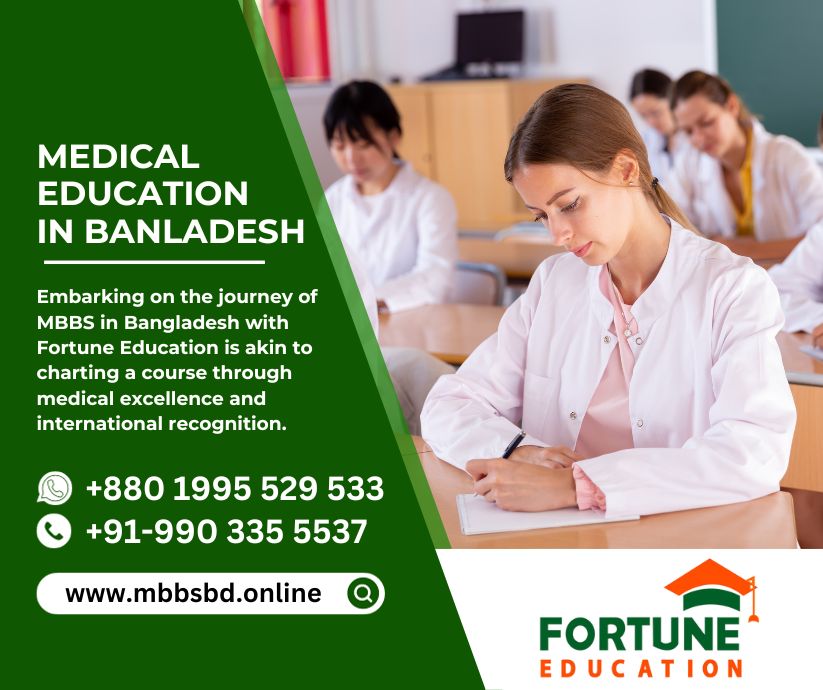The Medical Council of India (MCI), now known as the National Medical Commission (NMC) as of my last update in April 2023, is the authority responsible for establishing and maintaining high standards of medical education in India. For international students looking to pursue an MBBS or other medical degrees in India, it’s crucial to choose a college recognized by the NMC to ensure the degree is internationally recognized.
List of MCI Approved Medical Colleges in India for International Students
Below is a list of some prominent NMC-approved medical colleges in India that are popular among international students. This list is not exhaustive but provides a starting point for your research:
Government Medical Colleges (by rank)
- All India Institute of Medical Sciences (AIIMS), New Delhi
- Maulana Azad Medical College, New Delhi
- King George’s Medical University, Lucknow
- Jawaharlal Institute of Postgraduate Medical Education and Research (JIPMER), Puducherry
- Armed Forces Medical College (AFMC), Pune
- Lady Hardinge Medical College, New Delhi
- Grant Medical College, Mumbai
- Madras Medical College, Chennai
- Seth Gordhandas Sunderdas Medical College (GSMC), Mumbai
- Institute of Medical Sciences Banaras Hindu University (IMS-BHU), Varanasi
Private Medical Colleges
- Christian Medical College (CMC), Vellore
- Kasturba Medical College (KMC), Manipal
- St. John’s Medical College, Bangalore
- Sri Ramachandra Medical College and Research Institute, Chennai
- Amrita Institute of Medical Sciences and Research Centre, Kochi
- Manipal Academy of Higher Education, Manipal
- SRM Medical College Hospital and Research Centre, Chennai
- M.S. Ramaiah Medical College, Bangalore
- Dayanand Medical College and Hospital, Ludhiana
- Kalinga Institute of Medical Sciences, Bhubaneswar
MBBS Admission in Abroad
Important Considerations for International Students
- Eligibility: International students must meet the eligibility criteria set by the NMC and the respective colleges. This usually includes qualifying the NEET (National Eligibility cum Entrance Test) exam.
- Admission Process: The admission process for international students can vary from college to college. Some institutions may have seats reserved under the NRI (Non-Resident Indian) quota.
- Documentation: International students need to have their documents, such as academic transcripts, passport, student visa, NEET scorecard, and any other required certifications, ready and evaluated as per the requirements.
- Language of Instruction: The medium of instruction in medical colleges in India is English, which is beneficial for international students.
- Accreditation: Ensure the college is recognized by the NMC and the degree is recognized in your home country or wherever you plan to practice medicine.
Before applying, it’s advisable to directly contact the colleges or visit their official websites for the most current information regarding admissions, fees, and other requirements. The NMC’s official website also provides a comprehensive list of recognized medical colleges in India, which can be a valuable resource.
List of MCI Approved Medical Colleges in Bangladesh for International Students
Medical Council of India (MCI), now known as the National Medical Commission (NMC), recognizes several medical colleges in Bangladesh for Indian and international students. These colleges are popular among students due to their affordable tuition fees, quality of education, and the use of English as the medium of instruction. Graduates from these colleges are eligible to sit for the Foreign Medical Graduates Examination (FMGE) in India, a mandatory test to practice medicine in India for students who have obtained their medical degrees from abroad.
Here is a list of some MCI/NMC-approved medical colleges in Bangladesh that are popular among international students:
- Army Medical College Bogura
- Army Medical College Jashore
- Army Medical College Cumilla
- Jahurul Islam Medical College, Kishoreganj
- Khwaja Yunus Ali Medical College, Sirajganj
- Enam Medical College, Savar, Dhaka
- Eastern Medical College, Comilla
- Green Life Medical College, Dhaka
- Holy Family Red Crescent Medical College, Dhaka
- Ibrahim Medical College, Dhaka
- International Medical College, Gazipur
- Jalalabad Ragib-Rabeya Medical College, Sylhet
- Kumudini Women’s Medical College, Tangail
- Mymensingh Medical College, Mymensingh
- North Bengal Medical College, Sirajganj
- Northern International Medical College, Dhaka
- Rangpur Medical College, Rangpur
- Sylhet Women’s Medical College, Sylhet
- Tairunnessa Memorial Medical College, Gazipur
- University of Science & Technology Chittagong (USTC), Chittagong
Important Points for International Students:
- Eligibility Criteria: International students typically need to have completed their higher secondary education with Physics, Chemistry, and Biology. They also need to meet the minimum marks criteria set by the respective colleges and sometimes by the Bangladesh Medical and Dental Council (BMDC).
- Admission Process: The admission process for international students often involves submitting an application directly to the college or through authorized representatives. Some colleges may require additional entrance exams or interviews.
- Documentation: Necessary documents usually include academic transcripts, passport copies, health certificates, and financial proof to support the student’s education and stay in Bangladesh.
- Recognition: Ensure the degree offered by the college is recognized by the NMC (formerly MCI) if you plan to practice in India. Also, check for recognition by the BMDC and other international bodies if you plan to practice outside India.
- FMGE/NEXT: Graduates intending to practice in India must pass the Foreign Medical Graduates Examination (FMGE) or the National Exit Test (NEXT), once implemented, to be eligible for registration with the NMC.
Before applying, it is crucial to visit the official websites of the colleges and the NMC for the most current information regarding recognition, eligibility criteria, and the admission process.
Why Army Medical Colleges is Best?
Army Medical Colleges in various countries, including Bangladesh and India, are esteemed for their rigorous academic standards, comprehensive medical training, and the unique blend of military discipline with medical education. These institutions are often considered among the best options for medical aspirants for several reasons:
1. Quality of Education
Army Medical Colleges are known for their high educational standards. The curriculum is comprehensive, updated regularly to include the latest medical advancements, and designed to produce highly skilled medical professionals. The faculty often includes experienced military and civilian medical practitioners who bring a wealth of knowledge and practical experience to the classroom.
2. Infrastructure and Facilities
These colleges typically boast state-of-the-art infrastructure, including modern classrooms, well-equipped laboratories, and extensive libraries. Clinical training is conducted in affiliated military hospitals, which are usually well-equipped and handle a wide range of medical cases, providing students with ample practical exposure.
3. Discipline and Professionalism
The military environment instills discipline, punctuality, and a sense of responsibility among the students. This disciplined approach extends to their professional life, making them highly efficient and reliable doctors. The training also emphasizes ethical practices, leadership, and the ability to perform under pressure, qualities that are essential in the medical field.
4. Diverse Clinical Exposure
Students at Army Medical Colleges gain clinical experience in military hospitals, which often serve a large and diverse patient population. This exposure to a wide variety of health issues and medical conditions is invaluable in developing well-rounded medical professionals.
5. Research Opportunities
Many Army Medical Colleges are involved in cutting-edge research, particularly in areas relevant to military medicine, such as trauma care and infectious diseases. Students often have the opportunity to participate in research projects, contributing to their knowledge and experience.
6. Career Opportunities
Graduates of Army Medical Colleges have numerous career opportunities. They can serve as medical officers in the armed forces, where they have the chance to work in various challenging environments, including field hospitals and missions abroad. Alternatively, they can pursue civilian medical careers, where their comprehensive training and discipline are highly valued.
7. Networking
Studying in an Army Medical College provides students with the opportunity to build a strong network of professional contacts, including both military and civilian medical practitioners. This network can be invaluable in their future careers.
8. Subsidized Education
In many cases, the education at Army Medical Colleges is subsidized, making it more affordable than other medical colleges. In return, students may be required to serve in the military for a certain number of years after graduation.
9. Holistic Development
Beyond academic and clinical training, students in Army Medical Colleges participate in physical training, sports, and extracurricular activities, contributing to their holistic development.
https://www.youtube.com/watch?v=s7c17ompue8
While Army Medical Colleges offer numerous advantages, it’s important to note that they may not be the best fit for everyone. The military lifestyle and the commitment required post-graduation might not appeal to all medical aspirants. However, for those who are drawn to the blend of medicine and military service, these institutions offer an unparalleled opportunity to pursue a rewarding career.
Army Medical Colleges in Bangladesh
Army Medical Colleges in Bangladesh are part of the country’s commitment to providing excellent medical education and healthcare services, combined with the discipline and values of military life. These institutions are affiliated with the Bangladesh University of Professionals (BUP) and are recognized by the Bangladesh Medical and Dental Council (BMDC), ensuring that the medical degrees offered are of high standards and nationally and internationally recognized.
List of Army Medical Colleges in Bangladesh:
- Armed Forces Medical College (AFMC), Dhaka: Established in 1999, AFMC is the premier medical institution among the armed forces. It offers MBBS courses and is known for its rigorous selection process, high-quality education, and state-of-the-art facilities.
- Army Medical College, Chittagong: Located in the southeastern part of Bangladesh, this college offers MBBS programs and is known for its comprehensive curriculum and clinical training at military hospitals.
- Army Medical College, Comilla: This institution provides medical education and training with a focus on producing competent healthcare professionals who can serve both in military and civilian capacities.
- Army Medical College, Jessore: Known for its emphasis on discipline and academic excellence, this college offers MBBS programs and utilizes modern teaching methods and technologies.
- Army Medical College, Bogura: This college is one of the newer additions to the network of Army Medical Colleges in Bangladesh, offering MBBS courses with a focus on practical and theoretical knowledge.
- Army Medical College, Rangpur: Like its counterparts, this college offers high-quality medical education aimed at preparing students for careers in the healthcare sector, both within the military and beyond.
Features of Army Medical Colleges in Bangladesh:
- Quality Education and Training: These colleges provide comprehensive medical education, combining theoretical knowledge with practical clinical training. The curriculum is designed to meet international standards.
- Military Discipline: Students are trained in a disciplined environment, instilling values such as punctuality, integrity, and leadership, which are essential in the medical profession.
- State-of-the-Art Facilities: Army Medical Colleges are equipped with modern laboratories, libraries, and teaching facilities. Clinical training is conducted in well-equipped military hospitals.
- Research Opportunities: Students have opportunities to engage in research activities, contributing to medical science and improving healthcare services.
- Career Prospects: Graduates can serve as medical officers in the Bangladesh Armed Forces or pursue civilian medical careers. The rigorous training and discipline make them highly sought after in the healthcare sector.
Admission Process:
Admission to Army Medical Colleges in Bangladesh is competitive, with candidates required to pass the medical college admission test conducted by the Directorate General of Health Services (DGHS). Additionally, candidates must meet specific eligibility criteria, including academic qualifications and physical fitness standards. For international students, specific quotas and eligibility criteria are set, and they should contact the respective college or the Bangladesh Embassy in their country for detailed information.
Army Medical Colleges in Bangladesh represent a unique blend of medical education and military discipline, preparing students for challenging careers in the healthcare field.



